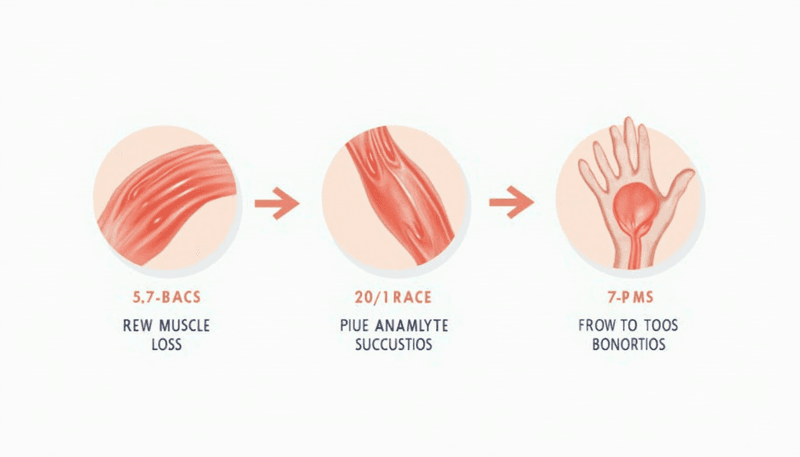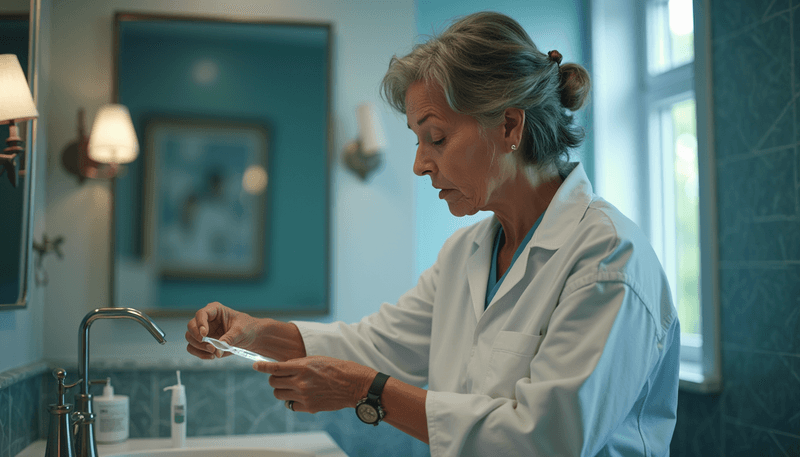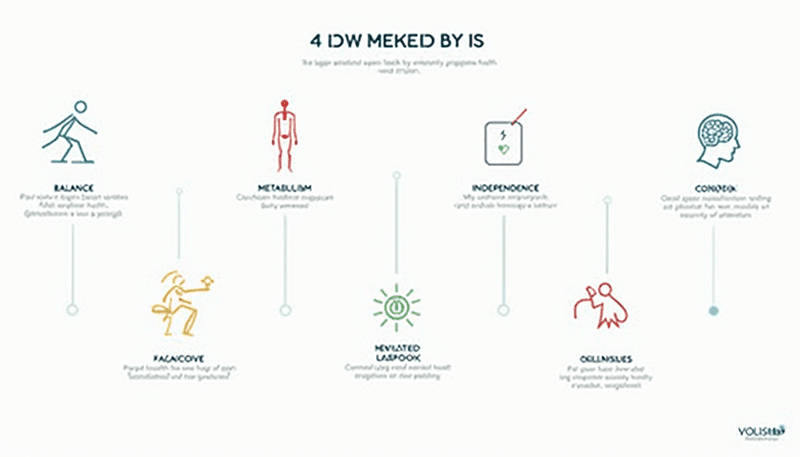New Test Tracks Muscle Loss at Home

Has anyone ever told you that losing muscle mass is just part of getting older? As a physician and women's health advocate, I've heard this oversimplification too many times. The truth is far more nuanced and actionable. A groundbreaking study from the Women's Health Initiative is introducing a revolutionary at-home test that could transform how we monitor and maintain muscle mass as we age.
Understanding Muscle Loss: Not Just About Age
The science behind muscle loss is fascinating. Our bodies naturally lose 1-3% of muscle mass annually after menopause. However, this process isn't uniform for everyone. Think of your muscles like a savings account - regular deposits (through exercise and proper nutrition) can offset natural withdrawals (age-related loss).
"How often do you think about your muscle health? If you're like most women, probably not until something feels wrong."
Let me share a story from my practice. Sarah, a 52-year-old executive, came to me concerned about feeling weaker despite maintaining her usual routine. Traditional tests couldn't give us a clear picture of her muscle status. This new D3-creatine test could have provided valuable insights much earlier.
The Game-Changing Home Test
The D3-creatine dilution test (D3Cr) represents a significant leap forward. Instead of expensive hospital visits or radiation exposure from traditional scans, this test involves taking a single pill and collecting a urine sample at home. It's like having a sophisticated fitness tracker for your muscle mass.
How it works:
- Take a specially labeled creatine pill
- Collect a morning urine sample 48-96 hours later
- Send the sample to a lab using provided materials
- Receive accurate measurements of your total body muscle mass
This method is particularly valuable because:
- It's non-invasive
- Can be done entirely at home
- Provides more accurate results than traditional methods
- Requires minimal time commitment
Practical Steps for Maintaining Muscle Health
While we wait for this test to become widely available, here are evidence-based strategies to protect your muscle mass:
Regular Strength Training:
- Aim for 2-3 sessions per week
- Focus on major muscle groups
- Include both bodyweight and resistance exercises
- Progress gradually to prevent injury
Nutrition for Muscle Health:
- Consume adequate protein (0.8-1.0g per kg of body weight)
- Include protein at every meal
- Stay hydrated
- Consider vitamin D supplementation (consult your healthcare provider)
Question to consider: What small changes could you make to your daily routine to better support your muscle health?
Beyond Physical Strength: The Mental Game
One fascinating aspect of muscle health is its connection to overall wellbeing. Strong muscles don't just help us lift heavy objects - they contribute to:
- Better balance and coordination
- Improved metabolic health
- Enhanced cognitive function
- Greater independence as we age
- Reduced risk of falls and injuries
In my years of practice, I've observed that women who maintain their muscle mass often report higher confidence levels and greater life satisfaction. They're not just stronger physically; they feel more capable in all aspects of life.
The development of this home test marks a significant shift in how we approach women's health monitoring. Rather than waiting for problems to develop, we can now take a proactive approach to maintaining muscle mass.
Take Action Today:
- Schedule a baseline fitness assessment
- Start a strength training routine (even if it's just 10 minutes daily)
- Track your protein intake for a week
- Discuss muscle health with your healthcare provider
"The best time to start caring for your muscles was yesterday. The second best time is today."
Your future self will thank you for the investments you make in your muscle health today. Start with one small change - perhaps adding a few squats while brushing your teeth or choosing protein-rich snacks. Every step counts toward building a stronger, healthier future.
What will be your first step toward better muscle health today?

Dr. Anya Sharma, MD
Dr. Anya Sharma is a board-certified gynecologist with over a decade of experience specializing in women's health and patient education. She graduated from Johns Hopkins School of Medicine and completed her residency in Obstetrics and Gynecology at a top hospital in New York City. With a passion for empowering women, Anya transitioned to content creation to provide accessible, evidence-based information on health topics relevant to mid-aged women. Her empathetic and pragmatic approach combines medical expertise with relatable insights, making her a trusted voice in the field.







